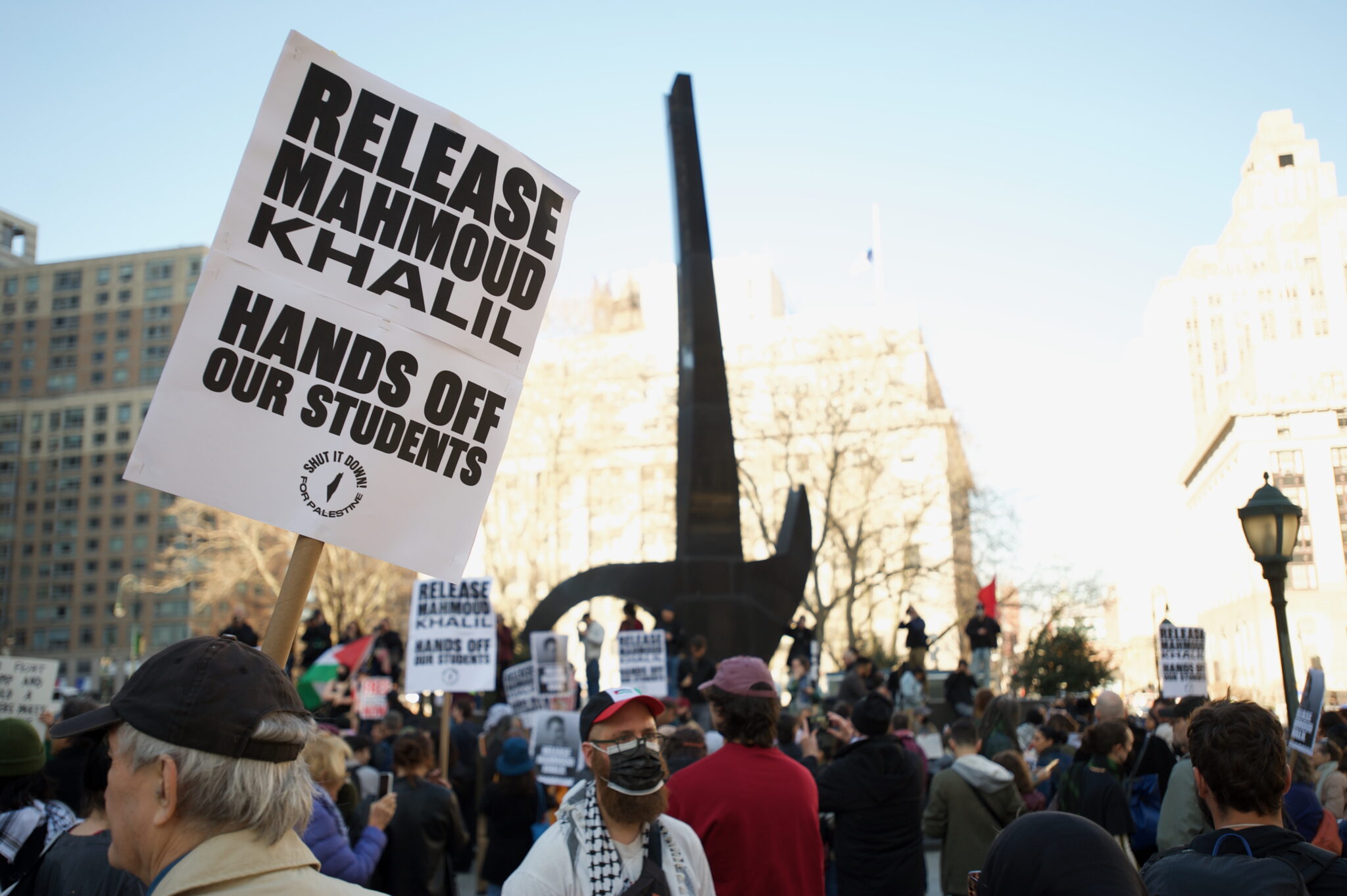
Gilbert Placeres is a student at Harvard Law School.
In today’s News & Commentary, what Mahmoud Khalil means for the labor movement, California’s Fast Food Council gets off to a slow start, and commentators debate worker-to-worker organizing as a model.
In In These Times, Jimmy Williams Jr., president of the International Union of Painters and Allied Traders (IUPAT), calls for the labor movement to stand up for Mahmoud Khalil, the Palestinian activist at Columbia University targeted for deportation by the Trump administration for his political views. Williams finds it imperative that unions defend against illegal attacks on political speech and likens the targeting of Khalil to the historical repression of labor organizing. Seeing Khalil’s targetting as a potential harbinger of future attacks on the right to protest, Williams concludes that “Working people across our country should see Mr. Khalil’s detainment for what it is: an attempt to silence our voices, roll back our individual liberties and diminish our collective power. We must resist these attacks on our fundamental freedoms with every tool at our disposal.”
California’s Fast Food Council, which we have previously covered, has gotten off to a slow start in its first year. Although it began meeting last March, so far it has hired three staff members but not taken any policy action. It recently decided to consider a cost-of-living adjustment to the minimum wage that went into effect last April, raising it 3.5% to $20.70, but has not scheduled that action for a vote. The Chair of the Council said the pace is to be expected and compared the process to starting a new department from scratch. “Putting together the groundwork so that we would be able to move toward substantive conversations on policy took a lot of time,” Nick Hardeman said. “It is hard to come to decisions. And there’s a lot of people who are coming from two completely different sets of life experiences when we’re talking about issues, and you see that play out in every single meeting.” Meanwhile, both workers and restaurant representatives have delivered hours of public comment to the Council, including a bevy of worker advocates raising concerns about wage theft, employers cutting hours, and the cost of living. Many labor advocates are invested in California’s Fast Food Council’s success because they see it as a potential model of sectoral bargaining in the United States.
Eric Blanc’s new book We Are the Union: How Worker-to-Worker Organizing is Revitalizing Labor and Winning Big argues that only worker-to-worker organizing has the potential to unionize new workers at the scale required for the labor movement. To Blanc, worker-to-worker organizing means workers train other workers in organizing, initiate organizing drives, and have a decisive say in day-to-day strategy. Blanc advocates for this model in part because he believes the high costs of staff-run organizing drives renders them incapable of meaningfully raising union density. One tactic Blanc wants to see more of is “seeding,” targeting workers across the economy in all kinds of workforces with open online trainings or social media to bring them into the labor movement as potential organizers. Others argue worker-to-worker organizing must be combined with targeted union investments in strategic sectors or doubt that worker-to-worker organizing actually adds up to an “emergent model” to be applied widely.






Daily News & Commentary
Start your day with our roundup of the latest labor developments. See all
July 4
The DOL scraps a Biden-era proposed rule to end subminimum wages for disabled workers; millions will lose access to Medicaid and SNAP due to new proof of work requirements; and states step up in the noncompete policy space.
July 3
California compromises with unions on housing; 11th Circuit rules against transgender teacher; Harvard removes hundreds from grad student union.
July 2
Block, Nanda, and Nayak argue that the NLRA is under attack, harming democracy; the EEOC files a motion to dismiss a lawsuit brought by former EEOC Commissioner Jocelyn Samuels; and SEIU Local 1000 strikes an agreement with the State of California to delay the state's return-to-office executive order for state workers.
July 1
In today’s news and commentary, the Department of Labor proposes to roll back minimum wage and overtime protections for home care workers, a federal judge dismissed a lawsuit by public defenders over a union’s Gaza statements, and Philadelphia’s largest municipal union is on strike for first time in nearly 40 years. On Monday, the U.S. […]
June 30
Antidiscrimination scholars question McDonnell Douglas, George Washington University Hospital bargained in bad faith, and NY regulators defend LPA dispensary law.
June 29
In today’s news and commentary, Trump v. CASA restricts nationwide injunctions, a preliminary injunction continues to stop DOL from shutting down Job Corps, and the minimum wage is set to rise in multiple cities and states. On Friday, the Supreme Court held in Trump v. CASA that universal injunctions “likely exceed the equitable authority that […]